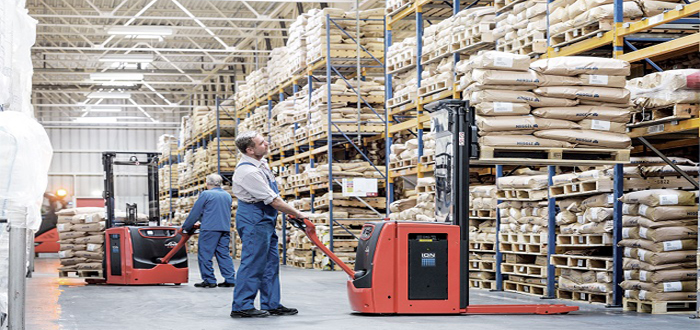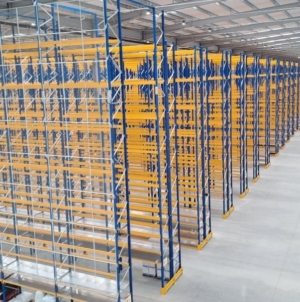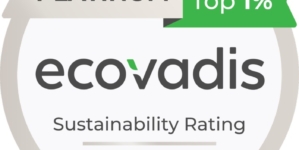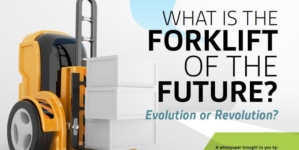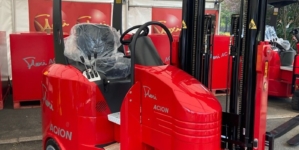-
Nutrivend selects Forterro’s Orderwise to support online expansion and streamline operations - April 11, 2025
-
ARROWXL LAUNCHES AMBITIOUS ZERO WASTE ROADMAP - April 8, 2025
-
THE BCMPA’S NEW CAMPAIGN DRIVES OUTSOURCING SUCCESS IN Q1 - April 7, 2025
-
BLACKOUT TECHNOLOGIES TARGETS TELEMATICS-INTEGRATED MOBILE DEVICE BLOCKING TO COMBAT SMARTPHONE DISTRACTION - April 1, 2025
-
Sparck Technologies awarded Royal designation - March 27, 2025
-
OpenADR Alliance announces first OpenADR 3.0 certified products with EVoke Systems, E.ON Energy and Universal Devices - March 25, 2025
-
Growing fulfilment and contract packer appoints new Managing Director - March 25, 2025
-
When is it time to invest in a WMS? Understanding the key trigger points - March 25, 2025
-
eCapital helps Vantage Recruitment on its journey to financial success - March 24, 2025
-
Hugo Beck Celebrates 70 Years of Packaging Innovation with Open House Events - March 20, 2025
Entire warehouse equipped with lithium-ion.
Linde customers can now perform the majority of logistics tasks in the warehouse using lithium-ion technology.
Many an industrial truck operator considers switching from lead-acid batteries to lithium-ion technology when it comes to investing in new trucks. This is due to the numerous advantages this technology offers: rapid (intermediate) charging, no battery changes, excellent performance thanks to high energy density and constant power output, long battery life and freedom from maintenance. With more than 30 other such warehouse trucks added to the portfolio of Linde Material Handling – including pallet stackers, double stackers, order pickers, and reach trucks –, customers can now fulfill the majority of logistics tasks in the warehouse with Li-ION variants.
More specifically, the expanded range of lithium-ion models encompasses pallet stackers and double stackers in the load range of 1.2 to 1.6 tons, which are available either as pedestrian trucks or as models with foldable or fixed stand-on platform. In addition, the product spectrum includes low-level order pickers with 2.0 tons load capacity and reach trucks in the load range of 1.0 to 2.5 tons.
Together with the pre-existing models, such as low-level order pickers and tow tractors, all key areas of application in the warehouse can now be covered using lithium-ion technology: from truck ramp to goods storage and retrieval in the high-rack warehouse, from order picking to the provision of goods for shipping. “Our range now includes ‘lithium-ion’ options for all of the highest-volume segments in warehouse technology, which means that we have taken a decisive step on our way to becoming a full-range provider for this battery technology,” says Christoph Englert, Product Manager Industrial Trucks at Linde. “We’re receiving extensive positive feedback from our customers regarding long-term operation. In particular, they are full of praise for the batteries’ steady voltage output which is constant right up until complete discharge and they are extremely satisfied with the high level of availability as this allows them to benefit from higher performance and reduced costs.”
To make the most of the performance advantages offered by the new battery technology, the individual components – battery, battery management function and charger – have been designed by Linde as a complete system and communicate with each other via CAN bus. “The battery management system monitors and controls the battery and ensures that it always operates in the optimal performance range,” emphasizes Englert. The entire package comes with a CE mark, and the batteries have been extensively tested and feature a multiple protection system.
According to the load capacity of the pallet stackers, double stackers and order pickers, which operate in the 24V range, there are four battery sizes available, ranging from 1.8 kWh to 9.0 kWh. For the reach trucks, which operate on a voltage of 48V, battery sizes of up to 39.2 kWh are on offer. Each battery can be combined with three different chargers – depending on how often and for how long (intermediate) charging is possible and what demands customers make regarding recharging speed. In the best of cases, it takes just 70 minutes for the Li-ION battery pack to fully recharge.



























